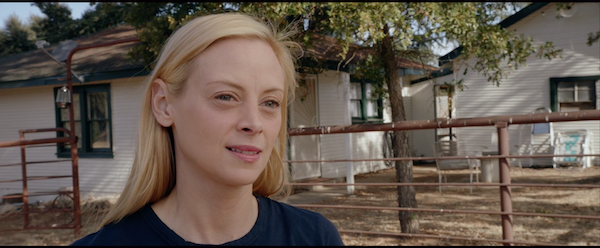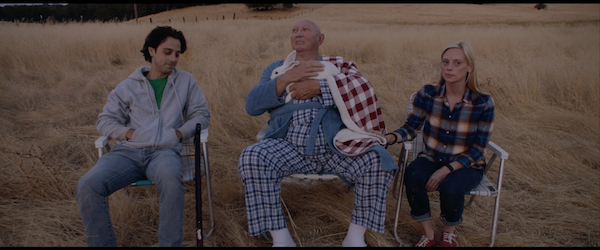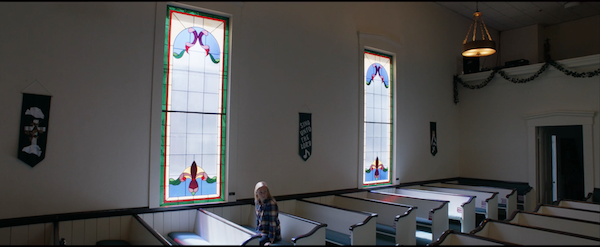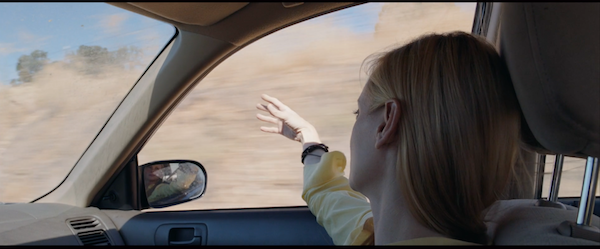
A quiet, contemplative drama of people lost in failed dreams, The Wake of Light lives up to some, if not all, of its ambitions. It’s a love story without a real romance, a faith-based drama where religion doesn’t seem to help, and look at caretaking that’s largely negative. And even though the film doesn’t nail all its arguments, it never loses its vision.
Writer, director and producer Renji Philip works with a spare, minimalist palette, setting The Wake of Light in a dusty village in rural California. There Mary (Rome Brooks) cares for her father (William Lige Morton), a stroke victim, on their farm. She supplements his disability payments by selling water from their well to friends in town.
There she meets Cole (Matt Bush), waiting for his car to be repaired. Cole essentially forces the very reluctant Mary into a relationship. A step shy of stalker, Cole is not nearly as charming as Philip may intend. But his empathy for Mary and his own obvious loneliness help make him more appealing.

Both characters are closed off from the world at large and blind to the faults holding them back. Philip is a smart enough writer not to fill in the blanks too explicitly, but as their backgrounds emerge the film starts to lose its sense of mystery. And their friendship forms in silent montages that feel a little too convenient, as if Philip couldn’t pin down the basis for their attraction.

The Wake of Light has two plot twists that feel like drastic miscalculations, and that throw the entire movie out of kilter. Philip also leans too heavily on allusions to other filmmakers, notably Terrence Malick. The swooping shots of nature, cryptic voice-overs (“What is this light that calls to me?”), and alienated characters all evoke works like To the Wonder.
Malick is not a bad choice to emulate, but The Wake of Light lacks intellectual rigor and philosophical depth of that director’s best work. It’s a nice film about sad people, and its observations run to the obvious. Small-town life can be unrewarding, caretakers can be isolated from their neighbors, parenting entails responsibilities and demands. That these are all good points to make shows how out-of-touch Hollywood releases can be.

The Wake of Light has won a string of audience awards at film festivals across the country, and it’s easy to see why. Its positive message, its comforting look, and its sincerity all set it apart from mainstream theatrical releases. Brooks and Bush are committed to their roles, and Morton and Sandra Seeling (as another woman caught in a caretaker role) provide good support. The production design (by Randy Kizer and Chris Roberts) finds an expert balance between retro and modern California. And Rainer Lipski’s cinematography is intimate but not obtrusive.
It’s hard to make a movie that doesn’t insist on a specific conclusion or point-of-view, and yet can still reward audiences willing to accept its world.


